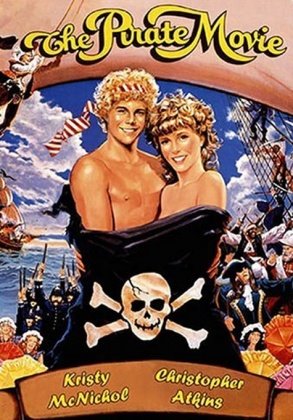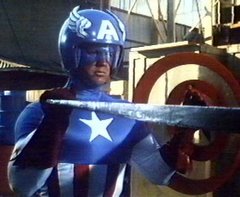For more than half my life, “The Simpsons” have been there for me. They have given me with tutelage beyond any college professor ever could, provided me role models, taught me work and parenting skills, and have given me an endless conversational zingers that I would pass off as my own wit to unknowing listeners.
Institutionally, they have surpassed being a trend and have become embedded in our pop culture – not only reflecting it, but at a time, dictating it.
A Google search alone will yeild 60 million page references to America's favorite yellow, four-fingered family (Youtube 93, 500, for those keeping track).
The omnipotent clan can be viewed almost round-the-clock on television (an observation deftly decried by patriarch Homer in the film's intro). Books have delved into the show's philosophy, religious themes, life lessons and copious analyses on each and every episode.
The lines from the show have reached immortality (Homer's disgruntled grunt “D'oh has made it into both the Oxford English Dictionary and Webster's Millennium Dictionary).
So seriously, what's left that has not been accomplished by the family but the big screen.
The creators had been oh-so-coy about the release of a film, and announced it by surprise last summer. Credit has to be given to them for not selling out and releasing the film at the height of the show's zeitgeist in the early 90s, as they could have easily cashed in on their name, much like character Krusty the Clown does with much of the life-threatening kids toys he haphazardly slaps his name upon for a quick paycheck.
The finest compliment I can bestow upon the film is that it feels just like a 90-minute episode written during their sixth or seventh season (which many feel were its best). With an almost two-decade buildup, there is hardly an expectation that the film would be capable of exceeding short of having Marge letting her Frank Lloyd Wright-designed hair down and do a lap dance for you in your movie seat (sorry, perhaps I have been too obsessive a fan over the years).
I will not bother going over the characters in the review, for if you are not at the least bit familiar with them as of yet, the only thing I can say to you is: “Welcome to Earth. Sorry for the current state of affairs in the White House. Hope you enjoy your stay before heading back to your planet.”
The film's story unfolds in classic Simpsonian fashion – which is to say, from the most tangential places. Let's just say the family has added a pig to the clan and when it is time for Homer to rid of the porcine feculence, he dumps it into Springfield Lake, which many show watchers may remember is also home to that mutated Darwinian oddity Blinky, the three-eyed fish – a result of the mass waste dumping that takes place within.
This causes the EPA's Nazi-like head Cargill (voiced by the ever-dependable Albert Brooks) to place a glass dome over the entire town, cordoning it off from the country like some giant terrarium. Meanwhile, Homer's careless actions once again places him at odds with his entire family – wife Marge, children Bart, Lisa and baby Maggie. The beauty of the film, as with the television show, is that regardless of just how outrageous the predicament encountered by the sleepy little Hamlet of Springfield faces, the core of family is the overriding theme.
Instead of ruining the gags (of which there are more than enough to fill a dozen summer “comedies”), I'll try to focus on just why audiences will get much d'oh! for their dough.
Some of the sweeping shots of the town are rendered using 3-D animation, and for once, you really get the feel of the scope of the suburb. It's used sparingly, but it's just enough to give the moments of chaos an epic sweep to them.
Hans Zimmer takes over for Danny Elfman as Oscar-winning musical director, and the composer of such films as “Pirates of the Caribbean,” “Batman Begins,” “Gladiator,” and “The Lion King” pays perfect homage to the latter's score and adds the elegaic scope necessary for the series' first cinematic endeavor.
The cast of Dan Castelleneta, Julie Kavner, Yeardly Smith, Nancy Cartwright, Harry Shearer and Hank Azaria are uniformly excellent, but one almost yearns for hearing more from their much-loved supporting characters (Principal Skinner, Duffman, we hardly knew ye!). It's a minor gripe, but an almost impossible task to ask, since there is no way 18-years of wacky bit players can be siphoned into 90 minutes.
Where the film really reaches the same stratospheric heights (as when Homer became an astronaut) is in the writing. The film has reeled in past series' scribe vets as George Meyer, David Mirkin, Mike Scully, Mike Reiss and Jon Vitti, whose names may not mean much to the average readers, but who have collectively won more Emmys for their work than Homer's been struck in his big bald noggin.
For the first 20 minutes of the film, the jokes are released in such a rapid-fire succession that it's hard to keep up. Once the film settles into its groove, it has the feel of a film narrative, not three half-hour episodes stitched together.
The resulting film is pure, unfiltered “Simpsons” that will provide even the most cynical “Simpsons” critics more than enough to chortle about. Politics, religion, relationships and community – the show's touchstones – are all sufficiently skewered. And, like all cartoons with longevity, it has the feeling of both timeliness and timelessness. With guest stars throughout the years of everyone from weird Al Yankovic to reclusive author Thomas Pynchon (twice!), we should expect nothing less.
While they get ready to launch their 19th season on television, the creators of “The Simpsons” can rest assured that they now have yet another media to maintain immortality, and this particular fan would not have it any other way.





No comments:
Post a Comment